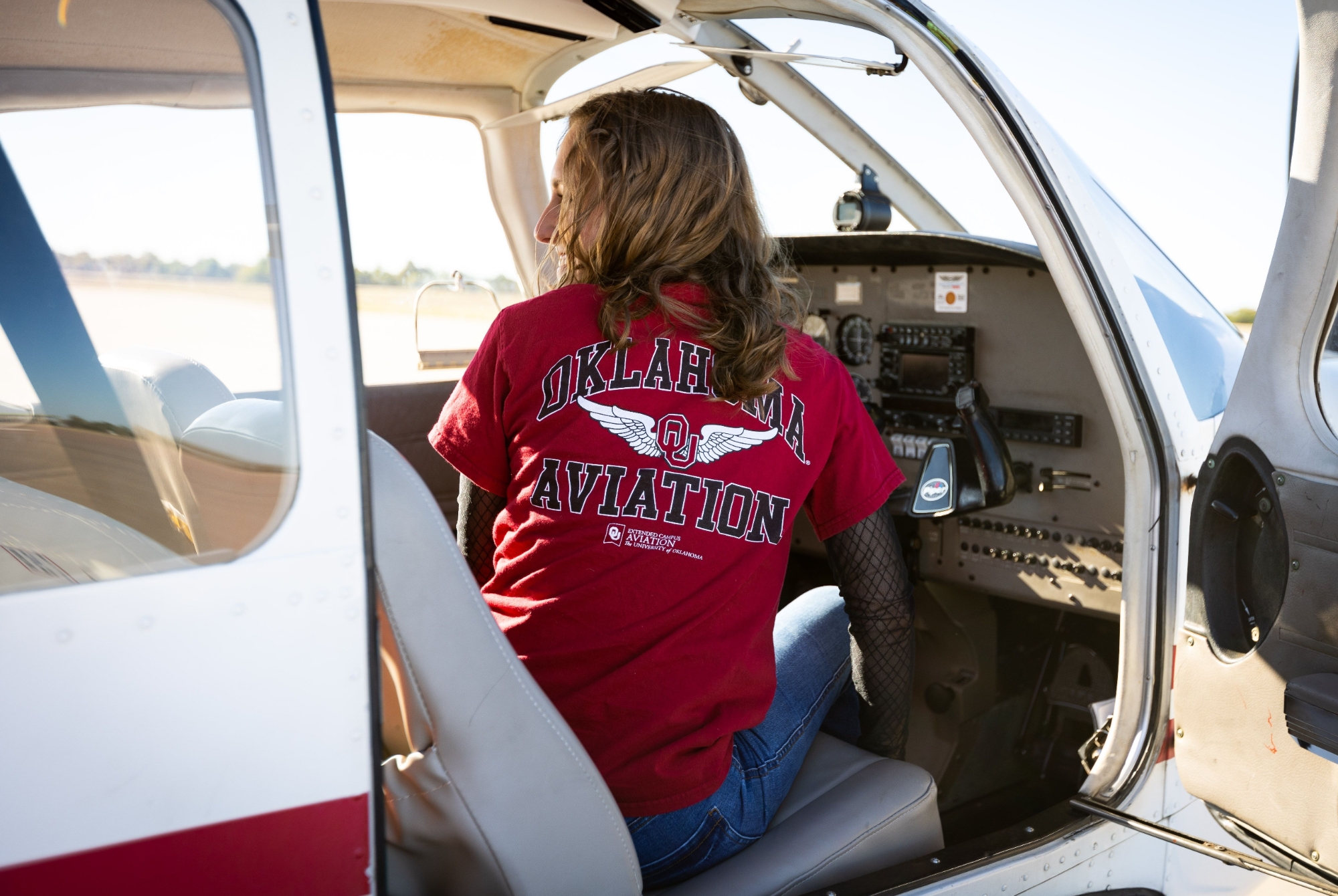
To address Oklahoma’s critical shortage of aviation professionals, the University of Oklahoma announced today its plans for a major expansion of its top-ranked School of Aviation Studies.
OU plans to more than double its enrollment in School of Aviation Studies programs — expanding from 250 total students to potentially 600 students over the next four years. For the freshman class that will enter OU next fall, the university’s goal is to potentially triple the number of first-year aviation flying-option students from 50 to 150.
OU is also implementing a three-year, $10 million plan to replace its current aging fleet of 19 aircraft, while also increasing its fleet to 28 aircraft, with the first nine new aircraft expected to arrive in December 2023.
“As a comprehensive public research institution, it is our duty to contribute our expertise toward the betterment of our state and its people,” said OU President Joseph Harroz Jr. “We have an incredible opportunity to expand the excellence of our No. 1 ranked university-based aviation program to meet the growing demand for aviation professionals in Oklahoma and across the nation. This is yet another example of OU’s commitment to strategically supporting our state’s economic and workforce needs.”
OU’s strategy to enhance Oklahoma’s aviation workforce was detailed today at an announcement event at OU’s Max Westheimer Airport with Gov. Kevin Stitt and other state leaders in attendance.
According to the Oklahoma Department of Commerce, with more than 1,100 aerospace entities directly employing more than 120,000, aerospace and defense is Oklahoma’s second-largest and fastest-growing economic sector.
“Expanding the aerospace and defense industry requires a strong, capable workforce which starts with aligning higher education and technical training,” Stitt said. “The OU School of Aviation Studies is doing just that, and I am proud of their work to build our state’s aviation workforce and look forward to other universities and higher education institutions following their lead.”
The plan also puts the OU School of Aviation Studies in a position to address Oklahoma’s shortage of air traffic controllers with the purchase of state-of-the-art air traffic control simulators. The simulators, which will be housed in the newly opened simulator laboratory at OU’s Max Westheimer Airport, will allow for an expansion of the Air Traffic Management major, one of the four concentration options within the bachelor of science in aviation degree.
OU Aviation also plans to construct a multifunction Center of Aviation Excellence, with a state-of-the-art hangar, classroom, lab, and office spaces to bring the program to new levels of excellence.
“With this important workforce initiative, OU remains committed to the highest academic standards for admission into our aviation program,” said André-Denis Wright, senior vice president and provost for the Norman campus. “OU will continue to produce the most qualified, passionate, exceptional pilots, air traffic controllers, and industry leaders who intimately understand the industry they’re entering.”
To help support this initiative and as part of OU’s recently announced $2 billion “Lead On” fundraising campaign, the university is committed to raising $30 million toward OU Aviation over the next five years. Of these funds, $15 million will be used to improve facilities and invest in the fleet, $10 million will be earmarked for student scholarships and support, and the remaining $5 million will go toward faculty growth.
Earlier this year, the OU School of Aviation Studies was recognized as the No. 1 university-based aviation program in the country by FLYING Magazine, outranking nearly 100 other nationally renowned aviation programs.
This academic year, OU moved the School of Aviation Studies to its new academic home in the College of Atmospheric and Geographic Sciences – merging the nation’s No. 1 aviation program with the college that houses the top meteorology program in the country. This new structure effectively utilizes the synergy between aviation, meteorology, and geography, helping to greatly expand OU’s educational and research portfolio. It will also allow all three schools in the college to grow their degree opportunities and research programs.
“With four undergraduate degree concentrations, the School of Aviation Studies offers students the chance to not only become experts in their chosen area of study but to learn the business behind the industry — an essential area of focus that has earned us national recognition,” said Berrien Moore III, dean of the College of Atmospheric and Geographic Sciences. “We are eager to continue this excellence and look forward to expanding our efforts to support the workforce needs for Oklahoma’s growing aviation and aerospace industry.”
The fleet expansion and increased enrollment are just two of the ways OU is strengthening the aviation workforce pipeline in Oklahoma. In 2021, the university partnered with Norman Public Schools to create the Oklahoma Aviation Academy. Through the use of the School of Aviation Studies and Gallogly College of Engineering instructors and facilities, the academy provides high school students the opportunity to earn credit toward an aviation degree by offering STEM-based curriculum covering a variety of related fields, including aviation, computer science, engineering, atmospheric sciences, robotics and more. The Oklahoma Legislature recently allocated $20 million in American Rescue Plan Act funds to support the Oklahoma Aviation Academy.
OU’s Aviation program growth coincides with the university’s plan to upgrade much of the infrastructure at Max Westheimer Airport. Pending final approval of the master plan with governmental authorities, the university is hopeful to construct a new air traffic control tower, extend the runway to accommodate larger planes, increase hangar space and make other surface rehabilitation projects around the airport. Improving the airport’s facilities will be an asset to both OU and the region, particularly with the university’s future move to the SEC.
To learn more about the OU School of Aviation Studies, visit ou.edu/ags/aviation.
###